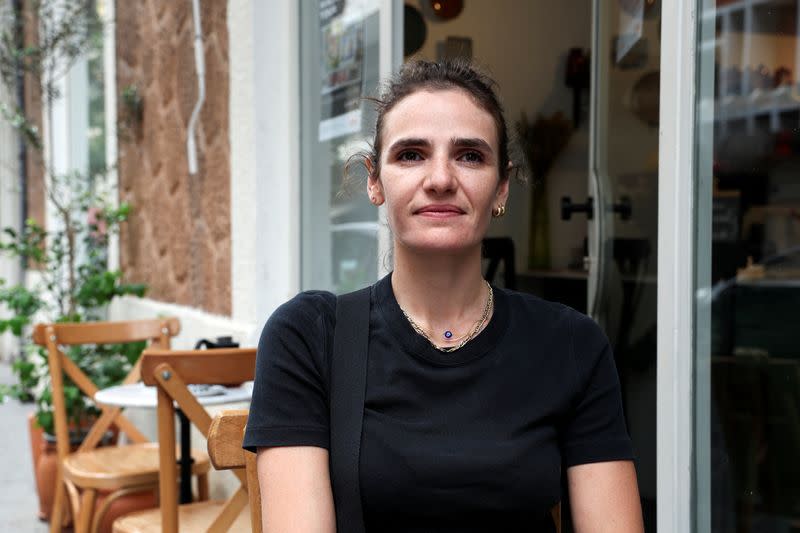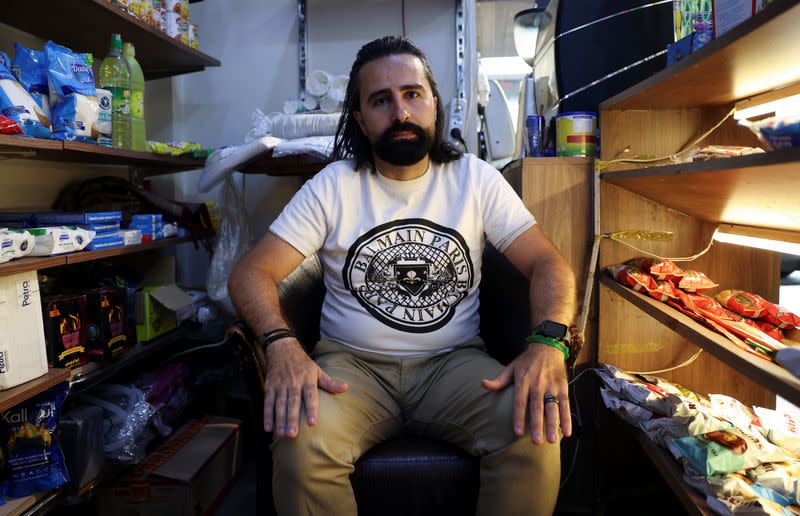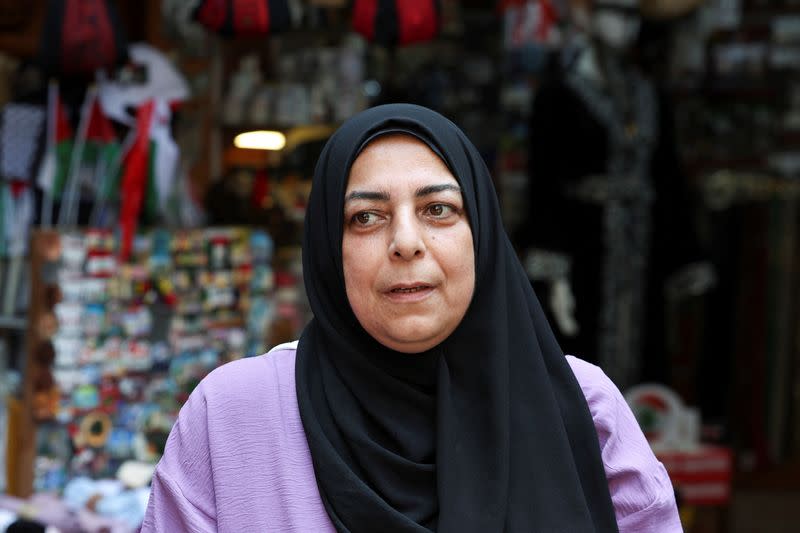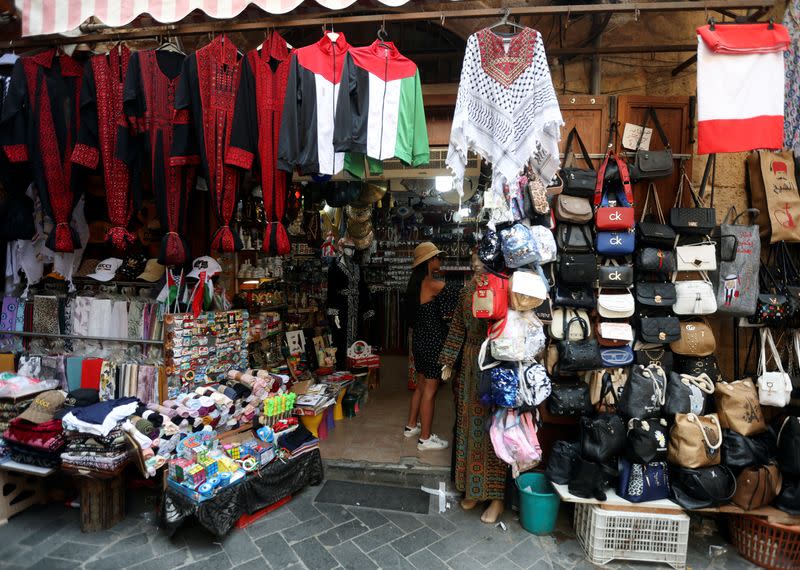Weary Lebanese brace for war after new Hezbollah threats
- Oops!Something went wrong.Please try again later.
BEIRUT/SIDON (Reuters) - Lebanese product designer Tara Tabet does not want to see her country pulled into a full-scale war with Israel, but like many of her compatriots is bracing for possible conflict after new threats by armed group Hezbollah against both Israel and Cyprus.
Hezbollah chief Sayyed Hassan Nasrallah surprised many on Wednesday when he said Cyprus - the EU member state closest to Lebanon - could be drawn into the group's conflict with Israel, raging in parallel with the Gaza war. Cyprus has denied taking sides in any war.
The warning by Nasrallah, who also threatened Israel with widespread precision strikes, left many Lebanese resigned to preparing for a possible escalation.
"Of course we don't want to go into a war with them - but if that's in solidarity with the people in Gaza, then so be it," Tabet, 32, told Reuters in Beirut on Thursday.
Asked if the threat to Cyprus had worried her, Tabet said it could derail her plans for a civil marriage. In Lebanon, personal status laws are governed by the courts of each religion - pushing many couples from different religious backgrounds to travel 40 minutes by plane to Cyprus to be married in court.
She said it was "stressful" to live with so much uncertainty, but that she had been trying to carry on "as if there's nothing - all of Beirut is like that".
Many Lebanese see Hezbollah's eight-month conflict with Israel as the latest episode in a string of recent setbacks - from COVID-19 lockdowns to the 2020 Beirut blast and an economic crisis that crushed the local lira and wiped out bank savings.
PASSPORTS AND FOOD STOCKS READY
Sami Masri, a 38-year-old businessman from the south who runs a coffeeshop in Beirut, said Israeli strikes had kept him from taking his family to the rolling hills of southern Lebanon for weekends, as they usually did in summer.
That meant spending more to access private beaches closer to Beirut - and even there, Masri said, he could not have fun.
"You're not happy because, you don't know, at any point - we have our passports ready, we have a suitcase ready, we have some food stocks ready," he told Reuters.
Already, some 90,000 Lebanese have fled their homes in the south. Some left Lebanon, others are staying with relatives and the most vulnerable are in collective shelters, including in the port city of Sidon.
Bana Baalbaki, a Sidon resident who spoke to Reuters in the city's market quarter, put on a brave face.
"No, I am not afraid because we are not better than the people of Gaza, nor the people of the south who were displaced," she told Reuters.
But others - like shopkeeper Qassem Qarram - were more worried. "Of course everyone is afraid, and those who tell you they are not afraid will be lying to themselves," he said.
(Reporting by Emilie Madi in Beirut; Aziz Taher and Hassan Hankir in Sidon; Writing by Maya Gebeily; Editing by Alex Richardson)





